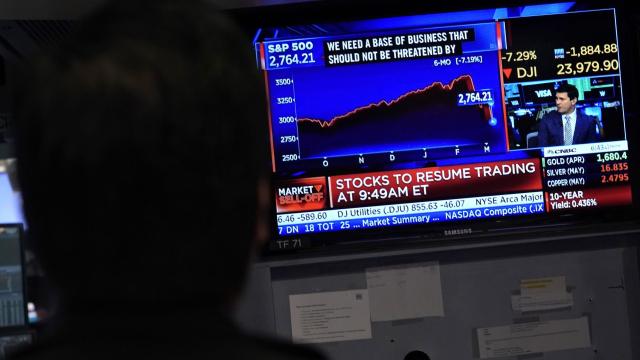The worsening global crisis wrought by COVID-19 is leading to cancelled international negotiations and wasteful “ghost” flights. And now it’s projected to lead to the first drop in oil demand in more than a decade.
The International Energy Agency’s (IEA) updated its oil market forecast on Monday, and it projects that global oil demand will continue in a downward pattern this year due to the virus. The market had already suffered its most dramatic and sudden quarterly drop in history. The IEA’s February forecast for the year had called for demand to grow by 825,000 barrels a day, but the revised version calls for demand to drop by 90,000 barrels a day compared to 2019.
“The impact of the coronavirus on oil markets may be temporary,” said IEA Executive Director Fatih Birol, in a statement. “But the longer-term challenges facing the world’s suppliers are not going to go away, especially those heavily dependent on oil and gas revenues.”
The expected dip in demand is due to people are staying home, ignoring their gas-guzzling cars, and cancelling flights, among other impacts tied to the coronavirus fallout. Under the average projection, the world will still use 99.9 million barrels per day this year so to dip is comparatively small, but the fact that demand is projected to drop at all is still a big deal. This is the first time since the 2009 recession that global oil demand is expected to decrease. The forecast could still change in the coming months depending on how COVID-19 spreads and affects the economy.
While IEA expects demand to drop, how real it could get varies widely. The agency has two different scenarios: one where things go downhill fast and one where governments get their shit together. In the pessimistic scenario, the virus is not contained and oil use drops even further than the average projection down to 730,000 barrels a day in 2020. In that optimistic scenario, however, the world moves quickly to contain COVID-19 and global oil demand grows by 480,000 barrels a day this year.
The IEA framing the best-case scenario as one where oil consumption grows ignores all the ways the climate crisis is set to impact our economy in the long run. Increased fossil fuel use is not a good thing for the economy and certainly not for the planet. That doesn’t mean that this intense fall in the industry is good, though. It’s particularly bad since it leaves workers exposed.
The IEA’s report even includes a nod to this shift in global policy to reduce greenhouse gas emissions. The agency writes:
The impact of clean energy transitions on oil supply remains unclear, with many companies prioritising short-cycle projects for the coming years. To date, announcements by major oil companies on reducing their CO2 emissions have tended to focus on long”‘term objectives. Nevertheless, investors continue to ratchet up pressure on the industry to sharpen its focus on sustainability issues while activists, especially in Europe and North America, seek to hinder new oil developments
After all, the coronavirus is but one disaster. In a world where climate shocks become more common, the odds of a recession are likely to grow. How will the economy respond, then?
Government leaders have a lot on their plate right now as they figure out the proper plans for addressing COVID-19, but they can’t lose sight of the necessary work to solve climate change. And that work involves transitioning into a world that isn’t so dependent on fossil fuels. That’s what the Green New Deal is all about.
If that transition doesn’t go smoothly”or if it doesn’t happen soon!”the global economy will see plenty more scares. What we’re seeing is only a taste of the reality to come in a future ravished by warming temperatures. Or we can opt for a future where we see this as an opportunity to economy.
Even the solar industry is taking a hit because of China’s production of necessary material, reports Bloomberg. Stocks are plummeting, and the New York Stock Exchange halted trading for 15 minutes Monday morning as a result.Â
In fact, this recognition is already affecting the financial well-being of oil and gas. Banks such as Goldman Sachs and JPMorgan Chase are already ending the funding of projects in the Arctic. Activists and investors are putting more pressure on banks to end the funding of oil and gas at large. It’s only a matter of time before financial interests look to spend their money elsewhere. Even energy companies are recognising that their product is on the down and out.
